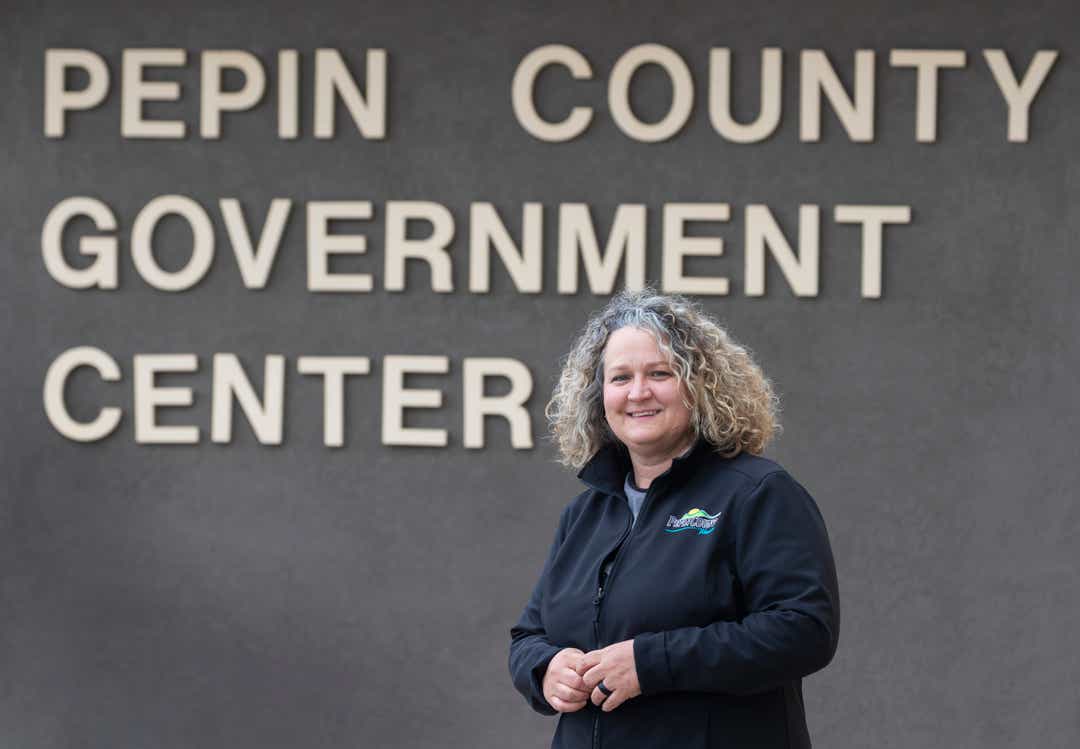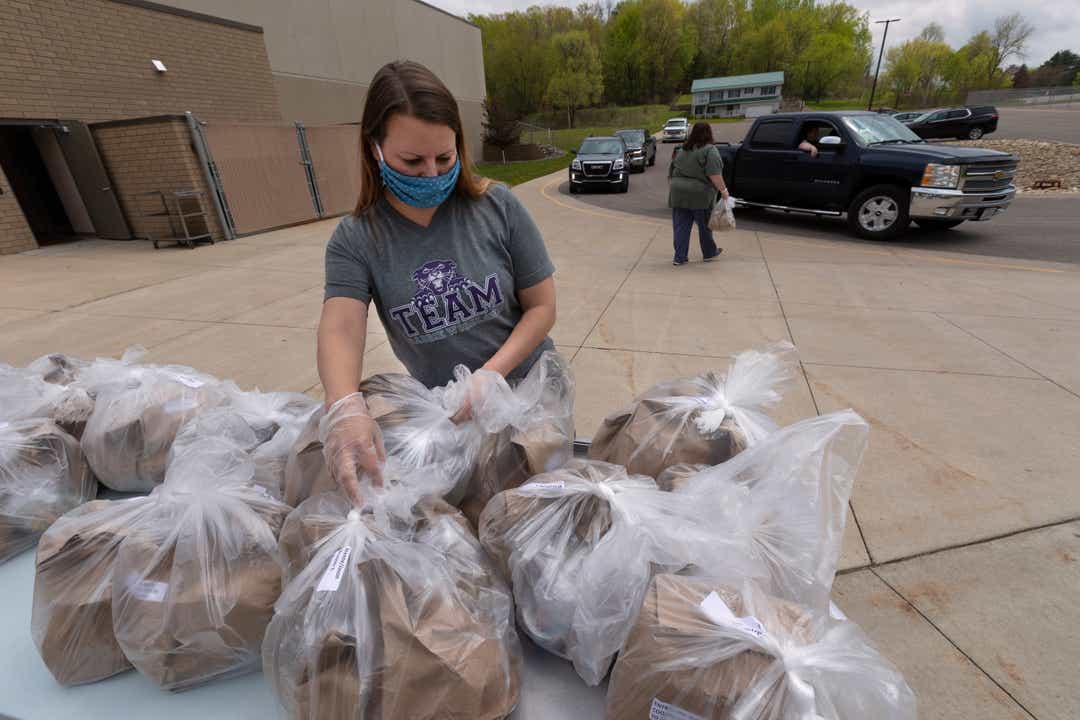
DURAND - For weeks, luck was riding with Pepin County.
They had tested, practiced social distancing and done all the right things to become among the last counties in Wisconsin without a case of the novel coronavirus.
But on Wednesday, Heidi Stewart, the county health officer, received the call she had been dreading. A county resident had tested positive for COVID-19.
Live Updates: The latest on coronavirus in Wisconsin
Daily Digest: What you need to know about coronavirus in Wisconsin
Share Your Story: We want to talk to doctors, nurses and others affected by coronavirus
And a few hours later, another call came in. Gov. Tony Evers' stay-at-home order had been knocked out by the state Supreme Court.
"It's almost a perfect storm," Stewart said. "The risk to our community right now is the highest. At first, it was maybe we'll get a case. But now we have a case. The potential spread can happen."
COVID-19, once just an abstraction, is now a reality here just as all the rules have changed to cope with the pandemic.
Pepin County, a rural slice of western Wisconsin around 90 minutes from the Twin Cities in Minnesota, stretches inland from the Mississippi River. With around 7,200 residents, it's among the state's least populated counties.
Even before the confirmation of the first positive test, the economic fallout from the wider outbreak was felt by shops, bars and restaurants catering to tourists in the villages of Pepin and Stockholm.
The economic strain was also felt in the county seat, Durand, where business slowed to a crawl.
"All we've been doing is hanging on week to week," said Amber Koehler, who owns the Rooster Tail Bar and Grill on West Main Street.
The Rooster Tail is the kind of place where you get $5 loaded Bloody Marys on Sundays and three tacos for $5 on Tuesdays. It got by with its carryout business, catering to regulars but also new customers who wanted to show support.
Koehler, her husband John and stepdaughter Tymber were preparing to reopen the bar with proper social distancing. Some tables were taped off. Bar stools were set 6 feet apart. There was hand sanitizer near the door.
"I think it's good for the small businesses to open back up," Amber Koehler said. "We need to be cautious. No elbow-to-elbow."
John Koehler, who also owns an auto body shop, said the pandemic has "brought the town together."
An example: Merchants sold gift cards and a local heating and plumbing firm matched the sales, up to $5,000 in all.
Also, there was a hiring surge at Marron Foods, a food ingredients company that distributes around the country.
One morning in early February, as fears over the coronavirus first surfaced in the country, Darla Olmstead in the fulfillment department came in and asked the owner, Matt Pearson, if they were running a special.
Forty orders came in overnight for Milkman instant low-fat powdered milk, which was suddenly in demand as people began stockpiling.
Then, thousands of orders began pouring in.
Pearson needed to staff up fast and called a local farmer, who that night sent his kids over to help. Others were hired over the following weeks.

Walking through the plant, Pearson grew emotional as he talked about his employees, who worked hard to keep up with the orders. And he spoke with pride about the American-made machinery that has been pushing out product for 60 years.
In early April, Pearson had to leave town for a few days, returning to his native New York to celebrate Passover.
There were two people on the flight to New York, he said. He drove back to Wisconsin, assured employees he was healthy, but just in case, isolated himself and also got a COVID-19 test.
"The Midwest is a blessing to me and my family," he said. "We're making progress. And it's nice we're impacting people here. We're creating employment, creating jobs. This is quintessential American manufacturing."
'What small-town America can do'
Brian Winnekins, owner of the local radio station, WRDN-AM, has turned over programming for an hour each Monday to the local schools, to keep the kids connected to the teachers. The Pledge of Allegiance is recited, birthdays are celebrated, announcements are made, stories are read.
Winnekins also provides a platform for Stewart to discuss the health situation.
In April, he kicked off a campaign to help out the local dairy industry. He headed to Eau Galle Cheese, purchased 10 packages of cheese curds and donated them to the local food pantry.
And then, the whole thing mushroomed.
"It's a testament to what small-town America can do," Winnekins said.
Even though bars were closed, local members of the Tavern League of Wisconsin purchased 200 gallons of milk to give away.

Then other businesses got involved. They started purchasing cheese curds, which were included in daily lunches for kids. The school district's meal program was expanded amid the outbreak, with meals picked up at the local elementary school or ferried by bus across the district.
"This has driven awareness to local farms," said Steve Bechel, vice president of Eau Galle Cheese, a third-generation family-run business. "We're doing a couple of hundred pounds of cheese curds for schools per week. Restaurants are buying some. The local thing of people wanting to jump on board and help is very encouraging and fun to see."
Randy Koller, chairman of the Pepin County Dairy Promotion Committee, has helped oversee the effort of connecting the farmers, business owners and schools.
On June 1, World Milk Day, the promotion committee is planning to give away 400 gallons of milk. The traditional farm dairy breakfasts are on hold this year. So the committee is planning a drive-by breakfast to grab a bag of food for four, containing butter, cheese, yogurt, pudding, milk, sausage, pancake mix and syrup.
Koller was treading cautiously with the lifting of the stay-at-home order.
"We're going to learn a lot in the next two to four weeks, I'm guessing," he said.
'The rest of us want to go on'
Stewart has been fielding calls from businesses and other organizations about how they should move forward. She is urging people to remain vigilant, practice social distancing and keep washing their hands.
"My hope is people will take it upon themselves to enforce guidelines," she said.
Anthony Bernicke, who runs Bodhi's Saloon, opened his place within hours of the governor's order being knocked down.
"For two months, I didn't make a dime," he said.
The regulars returned.
"If you don't feel good, don't go out," Bernicke said. "If you feel fear, don't go out. The rest of us want to go on with our lives."
Down the street at Perkz Cafe, owner Josette Perkovich was wrestling with how to proceed.
"I don't want to call it the new normal," she said.
For now, she's just doing takeout, with one customer at a time entering and a portable Plexiglas guard in the front of the restaurant.
She said the last few months have been "devastating," not just for her business but for the social life of a town where there has been no place to gather or linger over a cup of coffee and a slice of pie.
"I'm waiting to see and hear what everyone else is doing and figuring out what my staff and family are willing to do," she said.
Her aim: Move forward.
"case" - Google News
May 16, 2020 at 11:00PM
https://ift.tt/3dSf5Ot
Wisconsin's tiny Pepin County had fought off coronavirus -- then got its first case just as the state reopened - Milwaukee Journal Sentinel
"case" - Google News
https://ift.tt/37dicO5
Shoes Man Tutorial
Pos News Update
Meme Update
Korean Entertainment News
Japan News Update
Bagikan Berita Ini














0 Response to "Wisconsin's tiny Pepin County had fought off coronavirus -- then got its first case just as the state reopened - Milwaukee Journal Sentinel"
Post a Comment